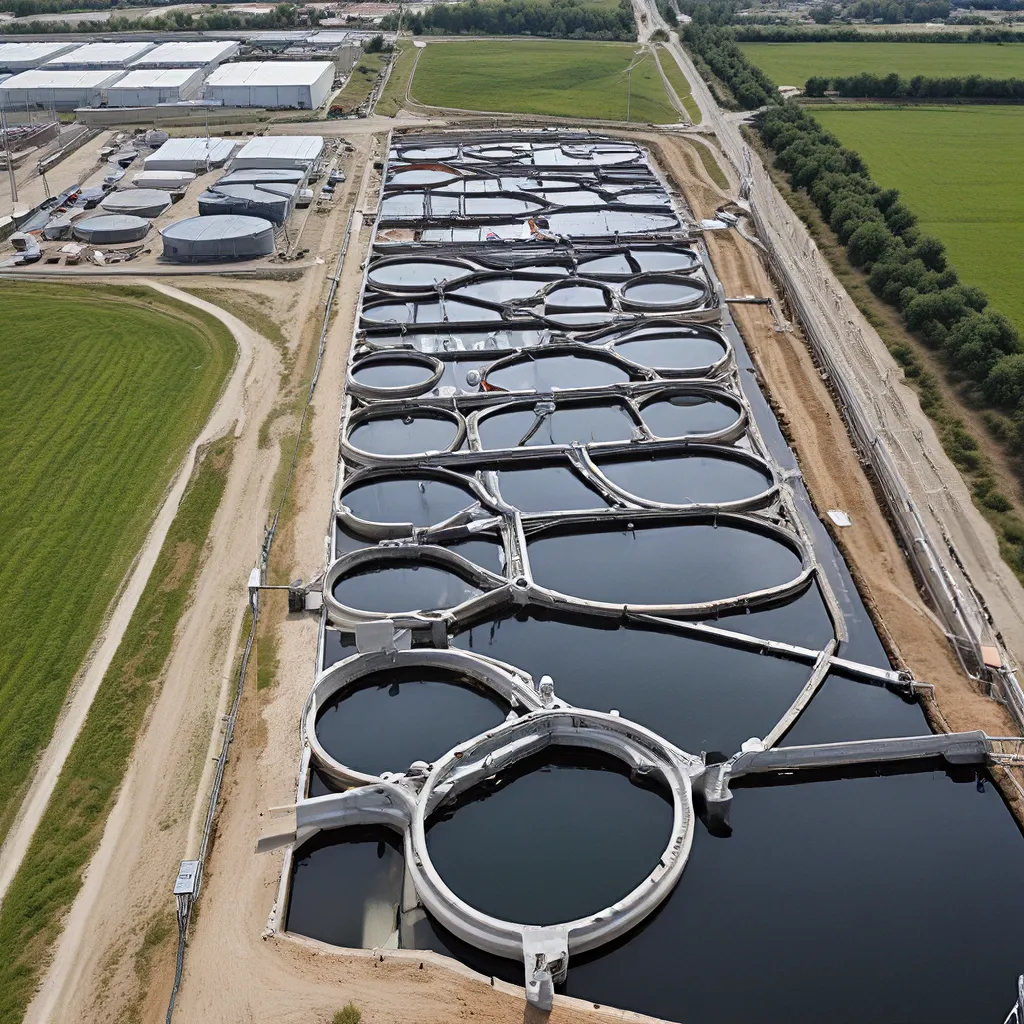
As an avid environmentalist and someone who’s deeply passionate about sustainable solutions, I’ve long been fascinated by the intersection of renewable energy and wastewater treatment. It’s an area that’s rapidly evolving, with exciting innovations that hold the promise of revolutionizing the way we manage our water resources.
The Water-Energy Nexus
Let’s start by understanding the water-energy nexus – the intricate relationship between water and energy systems. Wastewater treatment plants (WWTPs) are a prime example of this nexus in action. These facilities consume a significant amount of energy, primarily to power the various processes involved in treating and purifying water. In fact, WWTPs can account for up to 30% of a municipality’s total energy usage.
But here’s the really interesting part: WWTPs can also be leveraged as potential generators of renewable energy. By integrating renewable energy sources like solar, wind, or biogas, these facilities can not only reduce their own energy footprint, but also contribute to the broader sustainability of the local energy grid.
Renewable Energy Integration Strategies
So, what are the specific strategies being explored to integrate renewable energy into wastewater treatment plants? Let’s dive in:
Solar Power
One of the most promising approaches is the integration of solar photovoltaic (PV) systems. These systems can be installed on the rooftops or vacant land surrounding WWTPs, transforming underutilized spaces into clean energy generators.
Recent studies have shown that solar PV systems can reduce the biogas dependency of WWTPs by up to 23%, significantly improving their overall energy efficiency and sustainability.
Biogas Utilization
Another exciting avenue is the utilization of biogas generated during the wastewater treatment process. This biogas, which is primarily composed of methane, can be captured and converted into renewable natural gas or electricity to power the plant’s operations.
Innovative practices like using WWTPs as bioenergy generators demonstrate how water utilities can contribute to the broader renewable energy landscape, further strengthening the water-energy nexus.
Hybrid Systems
But the integration of renewable energy in WWTPs doesn’t have to be limited to a single technology. Hybrid systems that combine multiple renewable sources, such as solar and biogas, can provide even greater benefits. By diversifying the energy portfolio, these plants can enhance their resilience, reduce their reliance on the traditional power grid, and optimize their overall energy efficiency.
Overcoming Challenges
Of course, the integration of renewable energy in wastewater treatment plants is not without its challenges. Factors like initial investment costs, technological limitations, and regulatory hurdles can all present obstacles to widespread adoption.
However, as researchers have explored, strategic planning and innovative financing models can help overcome these barriers. Collaborations between water utilities, energy providers, and government agencies are also crucial in driving the necessary changes and paving the way for a more sustainable future.
The Road Ahead
As I delve deeper into this fascinating topic, I can’t help but feel a sense of excitement and optimism. The potential for renewable energy integration in wastewater treatment plants is truly remarkable. Not only can it reduce greenhouse gas emissions and energy consumption, but it can also position these facilities as active contributors to the clean energy transition.
Of course, there’s still a lot of work to be done, and the path forward may not always be straightforward. But with continued research, innovative thinking, and a shared commitment to sustainability, I believe we can unlock the full potential of this water-energy nexus.
If you’re as intrigued by this topic as I am, I encourage you to keep an eye on the latest developments. The future of wastewater treatment is undoubtedly renewable, and the possibilities are endless.
And if you’re interested in exploring how Alpha Wastewater can help you integrate renewable energy solutions into your water management strategy, I’d be more than happy to discuss further. After all, we’re all in this together, working towards a greener, more sustainable tomorrow.